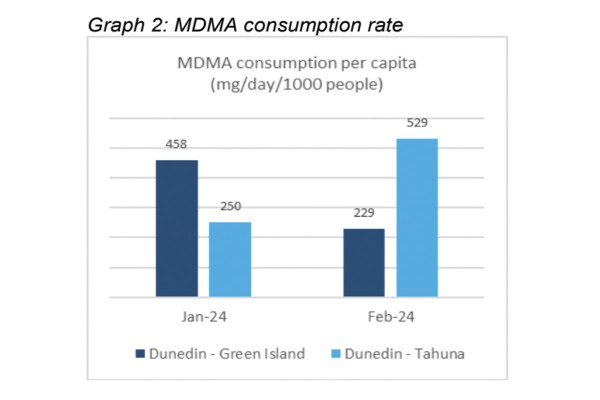Wastewater testing has revealed a 71.6% increase in MDMA consumption during Flo-Week, meaning the cops know you got geary. Cocaine consumption also had a marginal rise (in this economy?) but it was 35 times less prevalent than MDMA.
The information has come to light after Critic Te Ārohi requested data from the New Zealand Police under the Official Information Act. The data collected measured a control week during January and the week ending 19th of February – more affectionately known as Flo-Week. Yep, all those geared and drunken pisses you took mattered in the end. Thanks for your contribution to science!
Julia Smith, Information Fusion Manager at the New Zealand Police, explained to Critic Te Ārohi that while information can be fed to the National Drug Intelligence Bureau (NDIB) to monitor changes in consumption trends, it does not explain “who is consuming drugs, the number of people consuming drugs or why people are consuming drugs.”
The data produced from wastewater testing differs considerably from student estimates which ranged from a 40% to a 120% increase. Students shared mixed reactions about the real increase of 71.6%. “That’s pretty standard,” students Trin and Takeu reckoned. The pair said that they thought “everyone was doing it” during Flo. “It was just more accessible, if one person is doing it, everyone is.”
Fellow students Seb and Monica felt the same. “I swear I saw 700 people taking gum and snorting,” they commented, while noting that they did not themselves contribute to the “piss drug wastewater statistics.” The pair also suggested that a focus on harm reduction in tandem with a relaxed police presence may have contributed to the rise. Chur SSDP.
Police revealed to Critic Te Ārohi that the biomarkers used in detecting MDMA in our wastewater can not detect what the MDMA may have been cut with, meaning other harmful substances could be present. So while another student Ella agreed that the data made sense (“nobody is popping caps in January”) she was worried for her friends: “Down here, you get the tendency to get bad drugs as everyone is looking for a cheaper alternative.” As Ella pointed out, an increase in MDMA consumption indicates a potential increase in “bad drugs.”
Ella’s concerns are echoed on New Zealand Police’s website. MDMA use across sampled sites nationally in 2023 equated to a weekly social harm cost of $1.2 million. Dunedin’s usage rates are particularly relevant, with the most recent quarterly report finding that the Southern region had the highest amount of MDMA recorded in wastewater nationally. Julia Smith admitted that “from the wastewater data alone, NDIB cannot comment on student habits […] it is not possible to comment on whether North Dunedin’s results differ from wider Dunedin.”






